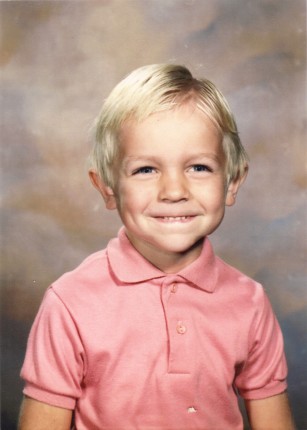I was eight years old. It was a day that most kids would receive as joyously as a mountain of Christmas presents: the last day of school. Yet there I was, past my bedtime, curled up on the floor outside my parents’ bedroom door, sobbing, sobbing.
I was crying because second grade was over, and so was my access to my second grade teacher—the most stable, warm, and motherly person in my life.
I was crying because I felt so loved by my teacher, and because I knew in my heart that, though she surely strove her best, my own mother didn’t have the mental and emotional resources to make me feel so safe and loved.
Enter Klonopin
Fast forward to third grade. Another scene at home: this time, I’m sitting in the living room talking to Dad.
“How many times does your heart beat in a minute?” he asked me. We probably stopped and counted my pulse for a minute to find out. Maybe it was something like 58 beats per minute. “And how many minutes have you been alive? 60 minutes times 24 hours times 365 days times 8 years….” He did the math, maybe on paper, maybe on a calculator. “Your heart has beat 243,878,400 times in your lifetime already. What makes you think it’s going to stop now?”
I had been having trouble sleeping on account of anxiety. I would lie in bed at night fearful that my heart was going to suddenly stop. Dad was trying to talk me through it rationally. And somehow I found the calm reasoning and the authority of math comforting.
It was enough for that night. But as convincing as the probabilistic argument was, my anxiety remained.
Soon Mom took me to see a pediatrician (Doctor Zirkle) about it. At the doctor’s office, I sat on the edge of the exam bed, white paper crinkling beneath me, and answered questions about my fears. We left with a prescription for Klonopin, a benzodiazepine tranquilizer.
The time soon came for my first dose. One night I went to the kitchen with Dad. It was dark, lit only indirectly by the hallway light. From the medicine cabinet above the dish washer Dad brought down the bottle of Klonopin pills. He gave me a glass of water and a tablet, and told me to swallow the tablet whole.
Until that time my experience with taking medicine was essentially cough syrup and other liquids. I had never swallowed a pill whole before and felt like I’d choke on it if I tried. I was an anxious kid! I couldn’t do it. In my fear I dropped the pill, and Dad swore and left me to overcome my fear alone.
I picked the Klonopin tablet up from where it fell and there in the dark of the kitchen at the age of eight, I taught myself to swallow tranquilizer pills.

First Do No Harm
I kept taking Klonopin through third grade. Eventually I seemed to grow out of the need, and by fourth grade I don’t think I was taking the drug at all.
Why was I such an anxious kid? I think I was just sensitive to the instability around me. By fifth grade I was conscious of feeling that my parents and my family were “different”, that there was something wrong with what I experienced at home. If that’s when I became aware of it, then when did the dysfunction really start? Surely it must have been substantially earlier.
Significant anxiety returned to my life in ninth grade, and with it came Klonopin as well, first as illicit doses given to me by my mom, then as a prescription of my own. My anxiety at the time was overwhelming and it was reassuring to take a drug I knew was supposed to calm me down. But it seemed to make things worse in the long run—I continued to have debilitating panic attacks, which didn’t actually go away until getting off of the medication.
If I had a child in third grade experiencing anxiety today, I would absolutely not put them on medication—how could the long-term effects of psychoactive drugs on still-forming brains and personalities be anything but harmful? I would consider seriously whether there was anything in the home environment I provided them that might be cause for anxiety.
Kids are like plants and will grow or thrive in relation to the environment they are planted in. If that environment contains submerged conflict between adults, age-inappropriate roles for children, or anything else amiss, it will subtly warp the child’s development over time. I think that explains my childhood anxiety completely. I was simply internalizing the dysfunction I lived in.
It’s been a decade since I took my last tranquilizer pill. I’ve been vastly less anxious since quitting them. Those things were an albatross around my neck and I’m glad to be rid of them.

Leave a Reply